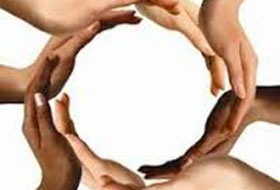Fight Early Alzheimer’s Disease & Dementia
Let our expert evaluations, personalized lifestyle improvements and ongoing clinical monitoring protect you and your loved one from the heartbreak of dementia.
Read our new book Outsmart Your Brain: The Insider’s Guide to Life-Long Memory.
Available now at Amazon or Barnes and Noble.
A New, Research-Driven Approach to Treating Alzheimer's Disease
Don’t spend another day as a victim of this terrible condition.
At AFFIRMATIVhealth, we offer personalized treatment plans for early-stage Alzheimer’s disease and other forms of dementia that are backed by the latest research. While we recognize there is no cure for these conditions, our team of experts will design a comprehensive program to address the underlying causes of your dementia to improve your memory.
Guidance and support from our team of medical doctors, PhDs, dietitians and physical therapists to help improve your memory.
The latest research indicates that Alzheimer’s disease and other forms of dementia don’t have a singular cause. Instead, there are over 40 different metabolic and lifestyle factors that contribute to memory loss, including hormone imbalances, inflammation and nutrient deficiencies. To reduce or eliminate these factors and improve brain function, we take the following steps:
- Form a complete picture of your health through cognitive testing, laboratory and genetic testing, and a medical history and lifestyle review.
- Create a personalized, comprehensive treatment plan using our state-of-the-art computer algorithm and then work with you and your loved one to implement it successfully.
- Provide ongoing coaching and conduct regular progress evaluations to ensure the changes are working. If something isn’t working as intended, we investigate the problem and revise your personal therapeutic plan.
This is just a general overview of our proven dementia treatment approach. Click the button below for more details on how we can help you and your loved one fight and prevent this terrible condition.
Offering two effective programs to maintain and improve your memory, cognition and well-being.
RE:mind Immersion Retreat
Spend 4 all-inclusive days at The Lodge at Sonoma, a 4-star resort in Sonoma, CA. Our experts will review your assessments and work with you to implement your personalized plan.
Learn More
RE:mind at Home
A great option for those who cannot attend our retreat. We’ll work with you over the phone and using a secure telehealth platform to review your tests, create a custom treatment plan, and provide ongoing coaching and adjustments.

Empowerment
Empowering individuals and families with tools and information...

Cutting Edge Science
Our mission is to incorporate the newest and most relevant scientific research…

Advocacy and Support
Dealing with the social and medical issues related to cognitive impairment...